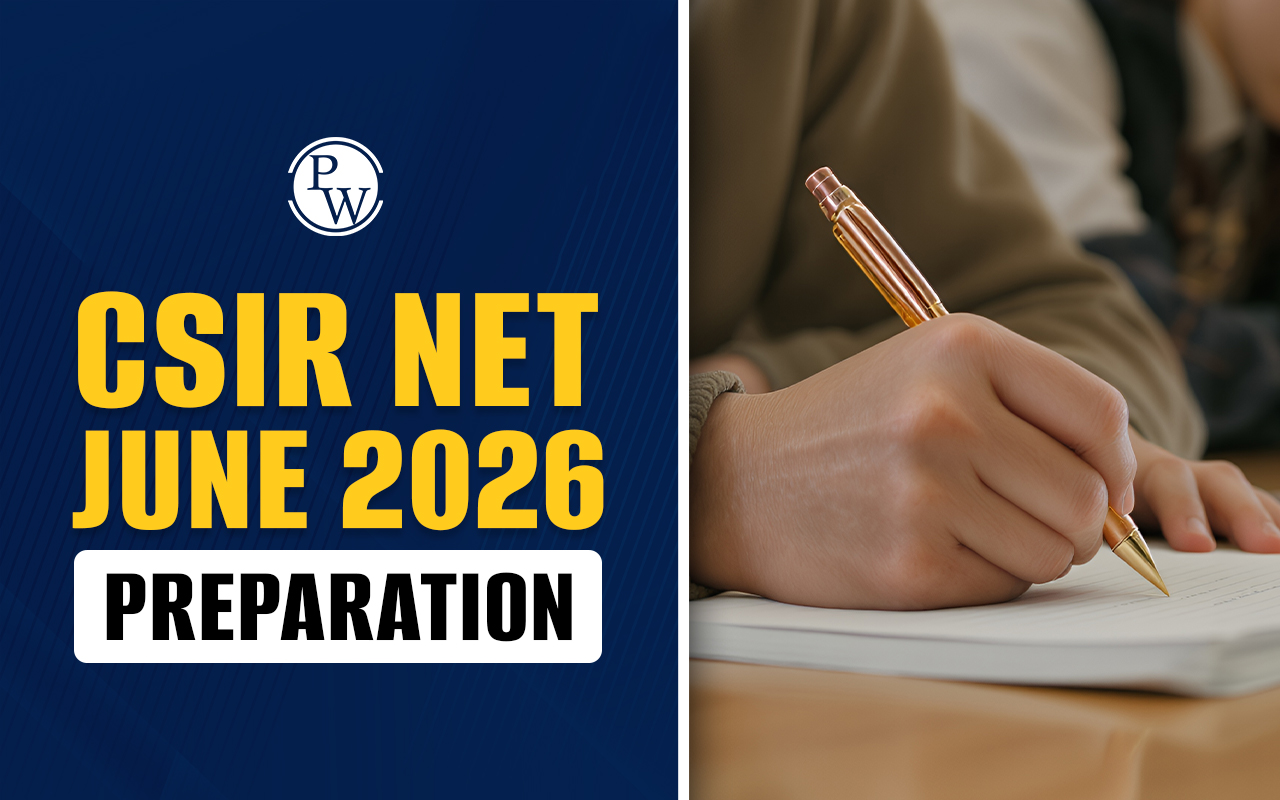
JRF Full Form : JRF stands for Junior Research Fellowship, a competitive scholarship program awarded to candidates aiming to pursue advanced research in their respective disciplines. This fellowship is primarily granted through national-level examinations such as UGC NET and CSIR NET, conducted under the supervision of the National Testing Agency (NTA). The Junior Research Fellowship serves as a foundational opportunity for individuals aspiring to enroll in PhD or equivalent research programs at recognized universities and research institutions across India. Provided here is a comprehensive overview of JRF, covering its full form, eligibility requirements, selection procedure, stipend details, and related information.
JRF Full Form in Hindi
जेआरएफ का मतलब जूनियर रिसर्च फेलोशिप है। यह विभिन्न संगठनों द्वारा उन उम्मीदवारों को दी जाने वाली छात्रवृत्ति है जो मुख्य रूप से यूजीसी नेट और सीएसआईआर नेट जैसी राष्ट्रीय स्तर की परीक्षाओं के माध्यम से अपने संबंधित क्षेत्रों में शोध करना चाहते हैं। जूनियर रिसर्च फेलोशिप (जेआरएफ) एक प्रतिष्ठित छात्रवृत्ति है जो अपने संबंधित क्षेत्रों में शोध करने वाले उम्मीदवारों को दी जाती है। यह फेलोशिप मुख्य रूप से यूजीसी नेट और सीएसआईआर नेट जैसी राष्ट्रीय स्तर की परीक्षाओं के माध्यम से प्रदान की जाती है।JRF Full Form Overview
The National Testing Agency conducts the JRF exam twice a year, and the candidates who clear the exam are awarded a Junior Research Fellowship. In this overview, we will provide information on the JRF full form, conducting body, post category, exam level, frequency, mode of exam, nationality, age limit, language/medium of the exam, and official website.| JRF Full Form Overview | |
| Conducting Body | National Testing Agency (NTA) |
| Post Category | JRF Full Form |
| Exam Level | National |
| Exam Frequency | Twice yearly |
| Mode of Exam | Online |
| Nationality | Indian |
| Age Limit | 28 to 30 years |
| Language/Medium of Exam | English and Hindi |
| JRF Exam Purpose | Junior Research Fellowship is a prestigious scholarship program that offers a unique opportunity for young researchers to pursue their academic passion |
| Official Website | https://www.nta.ac.in/ |
JRF Notification
The official notification for the JRF exam will be released by the National Testing Agency (NTA) on its website. Candidates must keep an eye on the official website for important dates, application procedures, and exam schedules.JRF Eligibility Criteria
The Junior Research Fellowship (JRF) scheme introduced by the University Grants Commission (UGC) offers an excellent opportunity for candidates who have successfully passed the UGC NET and CSIR NET exams to pursue research. Here’s a detailed breakdown of the eligibility criteria:Educational Qualification
- Master's Degree : Candidates must hold a Master’s Degree or equivalent in their respective subject from a recognized university or institution.
- Minimum Marks : A minimum of 55% aggregate is required in the Master’s program for general category candidates. For candidates from reserved categories (SC/ST/OBC/PwD), the minimum required marks may be relaxed to 50% .
Age Limit
- For JRF : Generally, the age limit is 28-30 years at the time of application.
- Age Relaxation : Candidates from reserved categories, such as SC/ST/OBC, women, and those with disabilities, can avail of age relaxation of up to 5 years . There may also be relaxations for candidates with research experience or those who have served in armed forces.
JRF Subjects
The JRF subjects listed below cover a wide range of scientific disciplines that are crucial for advancing our understanding of various biological processes and phenomena. The table provides a comprehensive overview of the various JRF subjects that are currently offered by research institutions.| JRF Subjects | |
| Subjects | Description |
| Agricultural Science | Studies the principles and practices of agriculture, including crop production, soil science, agricultural economics, and agricultural engineering. |
| Biochemistry | Examines the chemical processes that occur within living organisms, including metabolic pathways, protein structure and function, and enzyme kinetics. |
| Chemistry | Investigates the composition, properties, and reactions of matter, including organic and inorganic chemistry, physical chemistry, and analytical chemistry. |
| Computer Science | Involves the study of algorithms, computer architecture, software engineering, human-computer interaction, and artificial intelligence. |
| Earth Sciences | Examines the Earth's physical structure, composition, and processes, including geology, geophysics, meteorology, and oceanography. |
| Environmental Science | Focuses on the interaction between human activities and the natural environment, including ecology, conservation biology, environmental policy, and sustainability. |
| Human Physiology | Examines the functions and processes of the human body at the cellular and molecular level, including physiology of movement, sensory perception, and cognitive function. |
| Life Sciences (General) | Covers a broad range of biological disciplines, including cell biology, developmental biology, ecology, evolutionary biology, and microbiology. |
| Mathematics | Involves the study of numbers, quantities, shapes, structures, spaces, and changes in mathematical structures. |
| Microbiology | Examines the structure, function, and behavior of microorganisms such as bacteria, viruses, fungi, and protozoa. |
| Molecular Biology | Investigates the structure and function of biological molecules such as DNA, RNA, proteins, and lipids at the molecular level. |
| Neuroscience | Studies the structure and function of the nervous system in both health and disease conditions. |
| Plant Biotechnology | Involves the use of genetic engineering techniques to improve crop yields and disease resistance in plants. |
JRF Exam Pattern
The JRF exam pattern may vary slightly depending on the organization conducting the exam, so it's always best to check the official website or notification for the specific exam you're interested in for the most up-to-date information.JRF Syllabus
The Junior Research Fellow syllabus is a comprehensive outline of the topics that are typically covered in a research fellowship program in India. The syllabus is designed to test the candidate's understanding of various scientific and research-related topics, as well as their analytical and problem-solving skills. The JRF syllabus typically includes topics from the following areas: Mathematics and Statistics, Physics and Chemistry, Biological Sciences, Computer Science and Information Technology, Research Methodology, General Knowledge, etc.JRF Selection Procedure
The selection process for the Junior Research Fellowship involves:- Online Application : Candidates need to fill out the application form on the official website.
- Computer-Based Exam : The UGC NET/CSIR NET exam consists of two papers:
- Paper 1 : A general aptitude test.
- Paper 2 : Subject-specific questions.
- Result Declaration : Based on scores and cut-offs, candidates who qualify for JRF will be notified.
- Fellowship Award : Once selected, candidates can join research institutions or universities as Junior Research Fellows.
JRF Exam Centre List
The JRF exam will be conducted across various cities in India. Candidates can choose their preferred exam centre during the application process. The final allocation of the centre will be mentioned on the admit card.JRF Stipend
The Junior Research Fellowship (JRF) awarded through the CSIR NET is a prestigious opportunity for candidates aspiring to pursue research in various scientific fields. This fellowship not only provides essential financial support but also opens avenues for higher education and teaching opportunities. Candidates who qualify for the JRF receive a stipend of ₹37,000 per month for the first two years of their fellowship, enabling them to focus on their academic pursuits without the burden of financial instability. In addition to the monthly stipend, JRFs are entitled to an annual contingent grant of ₹20,000, which is directly reimbursed to them for research-related expenses. This comprehensive support system fosters an environment conducive to innovative research and academic excellence.Career Opportunities After Qualifying JRF
Qualifying the Junior Research Fellowship (JRF) opens various academic and research-oriented career paths. It provides candidates with the chance to pursue doctoral studies, contribute to scientific research, and explore teaching or research positions in higher education institutions, government bodies, or private organizations. The fellowship also serves as a gateway to long-term academic careers.
|
Career Opportunities After Qualifying JRF |
|
|---|---|
|
Career Path |
Description |
|
PhD Program Enrollment |
Opportunity to pursue doctoral research with financial support. |
|
Research Fellow in Institutions |
Join universities or national research institutes as a Junior Research Fellow. |
|
Teaching Assistant Roles |
Eligible for teaching assistant positions in colleges and universities. |
|
Project-Based Research Positions |
Work on funded research projects in academic or government organizations. |
|
Scientist/Research Associate Roles |
Entry-level positions in R&D labs, public research bodies, and think tanks. |
|
Fellowship to Senior Research |
Transition to Senior Research Fellowship (SRF) after performance review. |
|
Academic Publishing & Journals |
Contribute to scientific journals, publications, and conferences. |
JRF Full Form FAQs
What is JRF?
What are the eligibility criteria for JRF?
What is the stipend for JRF?
Where can I find the official JRF notification?
What are the exam centers for the JRF exam?










